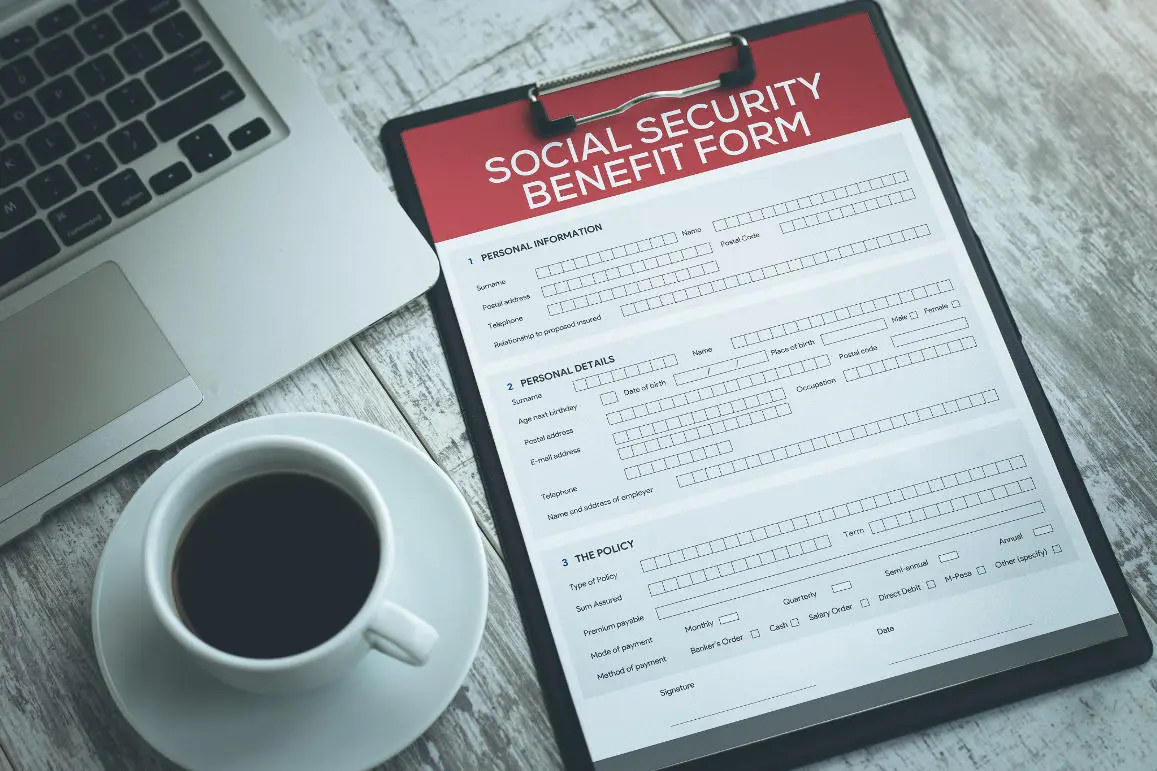Résumé : Les entreprises en Thaïlande doivent s’enregistrer auprès du Bureau de la Sécurité sociale (SSO – Social Security Office) dans un délai de 30 jours suivant l’embauche de leur premier employé. Cette obligation concerne aussi bien les employés thaïlandais que les employés étrangers. Les cotisations mensuelles s’élèvent à 5 % du salaire de l’employé, avec un plafond de 1 500 THB pour l’employeur et l’employé. Elles doivent être versées au plus tard le 15 du mois suivant. L’obligation d’enregistrement des dirigeants dépend de leur statut professionnel et de leur participation au capital, un aspect qui nécessite une analyse au cas par cas.
Introduction
Pour créer une entreprise en Thaïlande, il est essentiel de connaître les exigences légales, parmi lesquelles l’enregistrement auprès de la Sécurité sociale figure parmi les plus importantes. Selon la loi sur la Sécurité sociale, les employeurs sont obligés de s’enregistrer et de verser des cotisations au nom de leurs employés.
En Thaïlande, les entreprises doivent s’enregistrer auprès du Bureau de la Sécurité sociale (SSO) dans un délai de 30 jours après l’embauche de leur premier employé. Une fois enregistrés, l’employeur et l’employé doivent chacun verser 5 % du salaire mensuel de l’employé au fonds de Sécurité sociale, avec un plafond de 750 ฿ par mois.
Travailler avec un expert-comptable en Thaïlande ou un comptable à Bangkok peut aider à s’assurer que toutes les démarches liées à la paie et à la Sécurité sociale sont conformes à la réglementation locale.
Les employeurs doivent soumettre des déclarations mensuelles et effectuer les paiements avant le 15 du mois suivant, tout en conservant des registres précis. Le non-respect de ces obligations peut entraîner des amendes et même avoir une incidence sur les demandes de visa ou de permis de travail des employés étrangers.
Points clés
- L’inscription à la Sécurité sociale doit se faire à l’embauche du premier employé, et non à la création de l’entreprise.
- Elle s'applique aux employés thaïlandais et étrangers.
- L’employeur et l’employé doivent chacun cotiser 5 % du salaire, avec un plafond de 1 500 THB.
- Le non-respect de cette obligation peut entraîner des amendes allant jusqu’à 20 000 THB, des peines de prison pouvant atteindre 6 mois, ainsi que des surcharges mensuelles.
- Les directeurs qui sont actionnaires majoritaires peuvent ne pas être obligés de s’inscrire au SSO, mais cette situation doit être examinée attentivement en tenant compte des permis de travail et des activités de l’entreprise.
Quand une entreprise doit-elle s’inscrire auprès du Bureau de la Sécurité sociale en Thaïlande ?
Une idée reçue fréquente veut que l’enregistrement auprès du bureau de la Sécurité sociale (SSO) soit obligatoire dès la création de l’entreprise. En réalité, la loi impose cette inscription uniquement lors de l’embauche du premier employé.
Selon la loi sur la Sécurité sociale, une entreprise employant une ou plusieurs personnes âgées de 15 à 60 ans doit s’enregistrer en tant qu’employeur et inscrire ses employés auprès du SSO dans les 30 jours suivant l’embauche du premier salarié.
Ainsi, une entreprise peut exister pendant plusieurs mois, voire plusieurs années, sans être inscrite auprès du SSO, tant qu’elle n’a pas d’employés.
Une fois inscrite auprès du SSO, une entreprise doit enregistrer chaque nouvel employé. L’employeur est tenu de le faire dans les 30 jours suivant la date d’entrée en fonction de l’employé.
Un comptable en Thaïlande peut assister les employeurs dans la gestion des formulaires SSO et dans le respect des délais imposés par l’administration.
Les employés étrangers doivent-ils s’inscrire à la Sécurité sociale en Thaïlande ?
Les travailleurs étrangers employés en Thaïlande sont légalement tenus de s'inscrire auprès du Bureau de la Sécurité sociale (SSO). Ils bénéficient des mêmes droits et prestations que les employés thaïlandais, notamment la couverture maladie, maternité, invalidité, chômage et retraite.
Avant qu’une entreprise puisse inscrire un employé étranger auprès du SSO, ce dernier doit obtenir un permis de travail valide, attestant de son droit légal à travailler en Thaïlande. Une fois ce permis obtenu, l’employeur peut enregistrer l’employé auprès de la Sécurité sociale et commencer à verser les cotisations mensuelles obligatoires.

Que se passe-t-il si vous n'embauchez pas de personnel ?
Si une entreprise n’a embauché aucun employé, elle n’est généralement pas tenue de s’inscrire auprès du Bureau de la Sécurité sociale (SSO).
Cependant, les entreprises qui démarrent leurs activités sans personnel doivent rester vigilantes. Bien que l’absence d’employés puisse exonérer de l’inscription au SSO, elle peut attirer l’attention d’autres agences gouvernementales si l’entreprise génère des revenus.
Ces préoccupations découlent du fait qu’un investisseur étranger peut exercer une activité ou générer des revenus pour l’entreprise sans permis de travail valide ou sans être officiellement enregistré comme employé.
En Thaïlande, le terme « travail » est défini de manière large, et toute activité professionnelle est soumise à l’obligation de détenir un permis de travail valide. Ainsi, tout étranger exerçant une activité professionnelle doit s’assurer d’avoir un permis de travail approprié.
Si les autorités thaïlandaises considèrent un investisseur étranger comme un employé non enregistré, cela peut entraîner des conséquences importantes. Pour éviter ces problèmes, les investisseurs étrangers doivent pouvoir justifier clairement la structure de l’entreprise et préciser leur rôle réel au sein de celle-ci.
Cotisations sociales en Thaïlande : taux, calcul et déclaration
En Thaïlande, employeurs et employés doivent légalement verser chaque mois des cotisations au fonds de Sécurité sociale. Le taux de cotisation est de 5 % du salaire mensuel de l’employé, appliqué à la fois pour l’employeur et pour l’employé..
La cotisation de Sécurité sociale de 5 % est calculée sur le salaire mensuel de l’employé, mais dans une plage définie. Le salaire minimum pris en compte est de 1 650 ฿, et le salaire maximum est plafonné à 15 000 ฿. Ainsi, les cotisations ne dépassent pas ce plafond, même si le salaire de l’employé est supérieur.
Faire appel à un expert-comptable à Bangkok est souvent recommandé pour éviter toute erreur dans le calcul des cotisations et s’assurer que les déclarations SSO sont bien conformes.
Les cotisations sont versées conjointement par l'employeur et l'employé, chacun contribuant à parts égales.
Les cotisations mensuelles maximales sont les suivantes :
- Pour un employé : 5 % de 15 000 THB = 750 THB par mois.
- Pour un employeur : 5 % de 15 000 THB = 750 THB par mois.
- Cotisation maximale totale (employeur + employé) : 1 500 THB par mois.
Par exemple :
Si le salaire d'un employé est de 50 000 THB par mois :
- Base de cotisation : 15 000 THB (en raison du plafond salarial maximal)
- Cotisation de l'employé : 5 % de 15 000 THB = 750 THB
- Cotisation patronale : 5 % de 15 000 THB = 750 THB
- Cotisation mensuelle totale au SSO : 1 500 THB
Si le salaire d'un employé est de 10 000 THB par mois :
- Base de cotisation : 10 000 THB
- Cotisation salariale : 5 % de 10 000 THB = 500 THB
- Cotisation patronale : 5 % de 10 000 THB = 500 THB
- Cotisation mensuelle totale au SSO : 1 000 THB
Dates limites mensuelles de soumission des cotisations sociales
Les employeurs doivent verser les cotisations sociales, pour eux-mêmes et pour leurs employés, auprès du Bureau de la Sécurité sociale de Thaïlande avant le 15 du mois suivant. Par exemple, les cotisations de juillet doivent être réglées avant le 15 août. L’employeur est tenu de remplir le formulaire SorPorSor 1-10 (SPS 1-10, parties 1 et 2) pour déclarer ces cotisations.
Quelles sont les obligations en cas de départ d'un employé ??
Lorsqu’un employé démissionne ou est licencié, l’employeur doit informer le Bureau de la Sécurité sociale de ce changement. Cette démarche permet de mettre à jour le statut d’assuré de l’employé et de garantir son accès aux prestations auxquelles il a droit, telles que les allocations chômage.
L’employeur doit soumettre un avis de cessation du statut d’assuré (formulaire SorPorSor 6-09), en précisant le motif du départ de l’employé, avant le 15 du mois suivant le dernier jour de travail.
Le respect de ce délai est essentiel, à la fois pour éviter des sanctions pour l’entreprise et pour assurer que l’employé puisse bénéficier des prestations auxquelles il a droit, comme les allocations chômage.
Les dirigeants d'entreprise doivent-ils s'inscrire auprès du SSO ?
L’obligation pour un dirigeant d’entreprise de s’inscrire auprès du Bureau de la Sécurité sociale (SSO) dépend principalement de son rôle et de son statut au sein de l’entreprise. Si le dirigeant exerce des fonctions quotidiennes, perçoit un salaire et peut être considéré comme un employé, il doit alors s’enregistrer auprès du SSO.
Toutefois, si le directeur est également actionnaire ou actionnaire majoritaire, il peut être considéré comme propriétaire plutôt que comme employé et ne pas être tenu de s’enregistrer auprès du SSO.
Pour les directeurs étrangers, la situation est plus complexe en raison des exigences liées au permis de travail. Même s’ils sont exemptés d’inscription au SSO en tant que « propriétaires », ils doivent posséder un permis de travail valide pour exercer toute activité en Thaïlande.
Si l’entreprise n’a aucun autre employé enregistré, cela peut attirer l’attention des autorités de l’immigration ou du travail, surtout si le directeur est considéré comme gérant actif sans autorisation appropriée.
Indépendamment de son inscription personnelle au SSO, le directeur reste responsable de veiller à ce que tous les employés éligibles soient correctement enregistrés et que les cotisations soient versées dans les délais. Le non-respect de ces obligations peut entraîner des sanctions pour l’entreprise et pour les directeurs eux-mêmes.
Quelles sont les sanctions en cas de non-respect ?
Le non-respect des obligations prévues par la loi sur la Sécurité sociale peut entraîner des conséquences juridiques et financières pour les employeurs.
Le non-respect de l’enregistrement des nouveaux employés, de la déclaration des départs ou la transmission d’informations incorrectes peut entraîner des amendes ou même des peines de prison, conformément aux articles 34 et 44 de la loi sur la Sécurité sociale.
Les sanctions possibles pour les employeurs sont les suivantes :
- Amendes : jusqu'à 20 000 THB.
- Le non-paiement des cotisations de Sécurité sociale dans les délais ou le non-paiement de la totalité du montant est passible d'une majoration mensuelle de 2 % sur le solde impayé.
- Emprisonnement : jusqu'à 6 mois, ou à la fois une amende et une peine d'emprisonnement.
Bien que le SSO commence souvent par un avertissement en cas de non-respect des délais, des manquements répétés peuvent entraîner des poursuites judiciaires.
Clause de non-responsabilité
Veuillez noter que cet article est fourni à titre d'information uniquement et ne constitue pas un conseil juridique ou fiscal.





